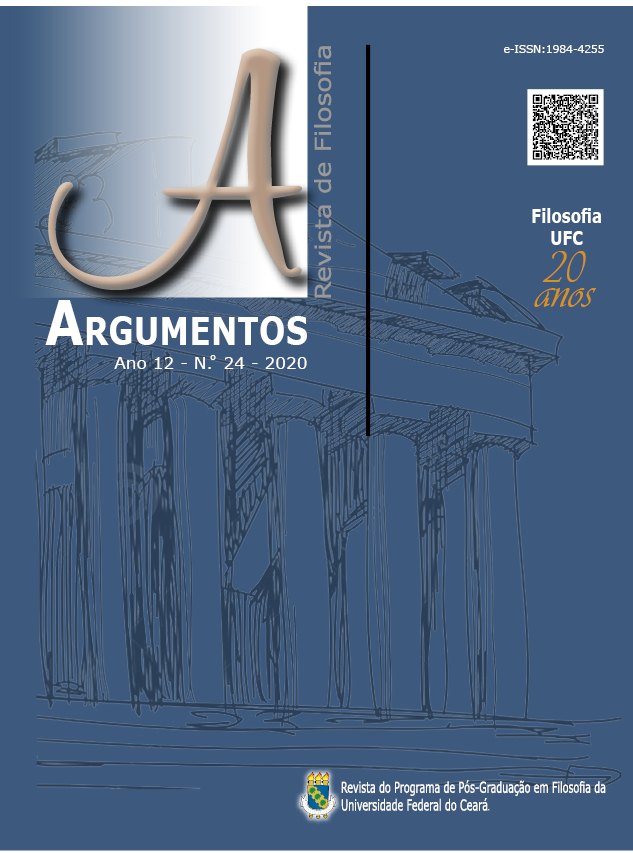Philosophy as a smoking pipe for elves
DOI:
https://doi.org/10.36517/Argumentos.24.6Keywords:
Philosophy. Criticism. Philosophy teaching.Abstract
The article problematizes the context of persecution and denial of the teaching process of philosophy. It is an attempt to discredit the presence of Philosophy in school by presenting it as useless knowledge, with no use for the training of the young student. In the words of a member of the government court, it can be referred as a “pipe for elves”. The authors question what would be this "pipe" as manner of discussing the importance of Philosophy and its teaching in school educational processes; and, in this sense, it replaces the critical role of philosophizing and philosophy.
References
CERLETTI, Alejandro. Ensinar Filosofia: da pergunta filosófica à proposta metodológica. In Kohan, Walter O. (Org.) Filosofia: caminhos para seu ensino. Rio de Janeiro. DP&A, 2004.
KANT, Immanuel. Sobre a Pedagogia. Tradução Francisco C. Fontanella. Piracicaba-SP: Editora Unimep, 2006.
NAVIA, Ricardo. O ensino médio de filosofia nas presentes condições culturais e sociais de nossos países. In. Filosofia e ensino: a filosofia na escola. , p. 278-290.
NIETZSCHE, Friedrich. Ecce Homo. Wie man wird was man ist. Vol. II, 1955. [Ecce Homo. Como cheguei a ser o que sou] Tradução de Lourival de Queiroz Henkel. Edições de Ouro
RUSSELL, Bertrand. Os problemas da Filosofia. Trad. de Desidério Murcho. Lisboa: Edições 70, 2008.
SARTRE, Jean-Paul. O Imaginário. Trad. Duda Machado. São Paulo: Ed. Ática, 1992.
SAVATER, Fernando. O valor de educar. Trad. de Monica Stahel. São Paulo: Planeta, 2012.
Downloads
Published
Issue
Section
License
Argumentos magazine is licensed under an International Creative Commons Attribution License.
The Magazine uses CC BY inclusion
1) The authors retain the copyright granted to the magazine or the right to initial publication, with the work regularly licensed under the Creative Commons Attribution, which allows the sharing of the work with acknowledgment of authorship and initial publication in this magazine.
2) The authors are authorized to contract additional applicable contracts, for non-exclusive distribution of the version of the work published in this journal (for example, publication in the institutional repository or as a chapter of the book), recognition of authorship and initial publication in this journal.
3) Authors are authorized and encourage to publish and distribute their work online (for example, in institutional repositories or on their personal pages) at any time before or during the editorial process, as they can generate productive changes, as well as increase the impact and reference of published work.




.jpg)










._._3.png)
1.jpg)
._._._.png)
